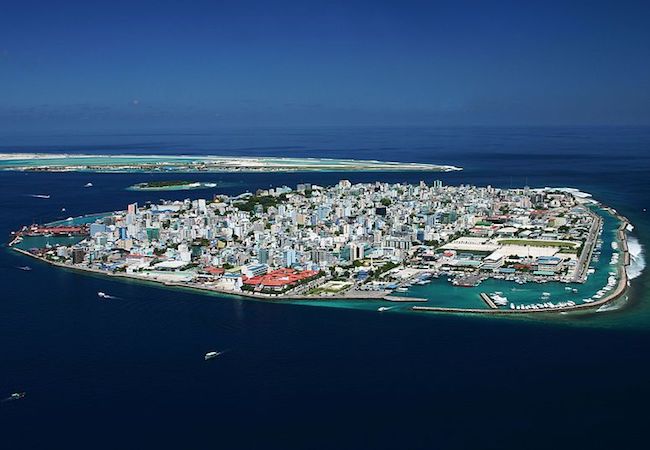
By Srimal Fernando and Megha Gupta
In September, the small island nation, Maldives will be facing a presidential election. This will be a crucial time not only for this South Asian island state but also for the other nations in this region especially India and Sri Lanka.
With the unfolding of this political event, on the 12thof August 2018, Prime Minister Modi’s message for the forthcoming elections of Maldives echoed a strong concern about the “political developments in the Maldives” and a hope for the Maldives government to early reinstitute the political process and “allow democratic institutions, including the Judiciary to function independently in a fair and transparent manner”.
According to the Freedom House Index of 2017, Maldives has been ranked as a ‘Partially Free’ nation. Though the declaration of an emergency on the 5thof February 2018 and the unfolding political events disturbed the neutrality of this island nation. During the emergency, the Former President Maumoon Abdul Gayoom along with the two Supreme Court judges, including the Chief Justice Abdulla Saeed had been arrested by the security forces thereby destabilizing the political set up of the state. With the arrest of Abdul Gayoom, his daughter who was the foreign minister and a state minister of health under the Yameen administration resigned from the post on February 27th, 2018. She has also been sharing her concerns regarding the detention of her father and her brother Member of the Parliament Faris Maumoon with the Human Rights Commission of Maldives. The current government has also been accused of corruption and money laundering by the opposition which has been denied by the government. Due to this lack of transparency in the system, the voters are also finding it difficult and facing challenges to elect the candidates according to their own free will. This uncertainty is making the international community especially the U.S., India and the European Union to be concerned about the democratic institutionalization of Maldives.
In the forthcoming elections, the current President Abdulla Yameen Gayoom from the Progressive Party of Maldives (PPM) and the current joint opposition candidate Ibrahim Mohamed Solih from the Maldivian Democratic Party (MDP) and his running mate from the Jumhooree Party (JP) are contesting. This decision of nominating a joint opposition candidate was taken following the former President Mohamed Nasheed’s decision to pull out of the forthcoming Maldivian Presidential race. According to the political sources, the current joint opposition candidate will be backed by parties such as Adalath party, a faction of the ruling progressive party of Maldives led by the Former President Maumoon Abdul Gayoom and the Jumhooree party.
This situation is not only affecting the Maldivians but also disturbing the expatriate communities especially from India, Sri Lanka, Bangladesh, and other South Asian countries. These expatriates mainly working in the education, tourism and the other informal sectors receiving high wages than their home country will get directly or indirectly affected by these restricted visa regulations and the unstable political scenario. Therefore, this presence of the large expatriate community is making the South Asian regional actors difficult to put diplomatic pressure on the current Maldivian government to resolve this matter.
In addition to this domestic scenario, external factors such as China and Saudi Arabia through their massive investments and loans are also influencing the current government to not take a neutral stand that could create a shift in the power balance within the region. The diplomatic ties between India and Maldives has further deteriorated with the Maldivian government’s request to New Delhi to remove the military helicopters and the personnel posted in the island nation. Maldives with this shift is going to a different direction which is complex and uncertain and the best way to resolve this is to bring all the political parties to the table for the betterment of Maldives and the other neighboring countries.
Srimal Fernando a research scholar at Jindal School of International Affairs, India and an editor of Diplomatic Society for South Africa and Megha Gupta, a scholar of Masters in Diplomacy, Law, Business at Jindal School of International Affairs, India.




